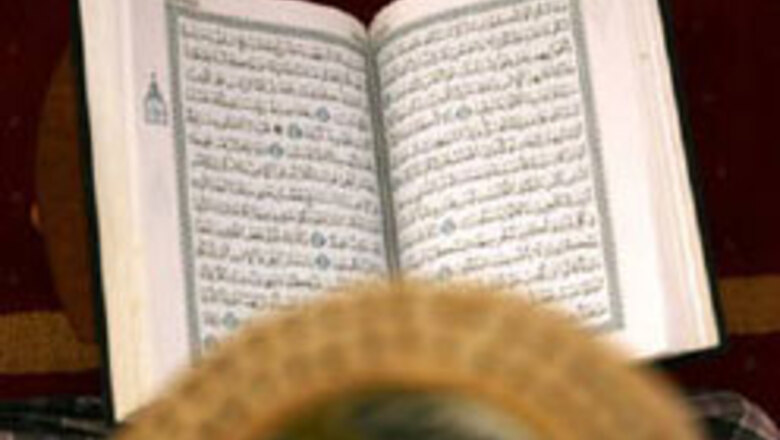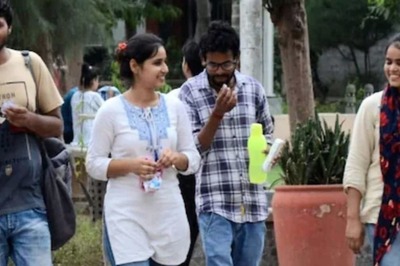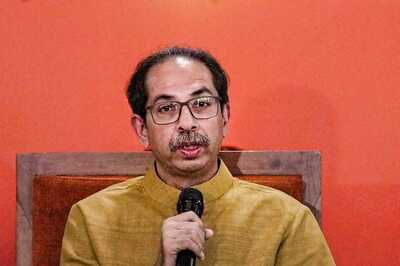
views
Paris: Rachid Benzine wishes Muslims would stop quoting the Quran and start reading it.
The young French academic said many Christians and Jews read their scriptures with a critical eye, adapting reading to the modern world but Muslims read theirs literally and quote it to justify rules that may no longer apply to lives today.
Doesn't this play into the hands of fundamentalists who want to impose a narrow view of Islam?
"We cite Quranic verses left and right to justify everything and nothing," said Benzine, who teaches Quranic hermeneutics - the discipline of interpreting texts - at the Institute of Political Studies in Aix-en-Provence.
In debates about Islam, he says, the Quran has become "a text of slogans, a supermarket" for adversaries to choose quotes to impose what they think is the only valid reading.
"No interpretation can pretend to be the only right one," insists Benzine, whose 2004 book The New Thinkers of Islam highlights the work of Muslim reformers. He plans to publish a book on interpreting the Quran in 2008.
With his towering athletic build and MP3 ear plugs, Benzine, 35, looks anything but a scriptural scholar as he arrives at a Starbucks cafe in Paris to talk about the Quran.
But before long he is deconstructing the Hebrew Bible, citing Protestant theologians and quoting modern philosophers to show how Muslims can take a fresh approach to the Quran.
His approach sometimes upsets his Muslim students. "Last year, there were young women who had tears in their eyes. But as they follow along, they see how it can be liberating."
PAGE_BREAK
Benzine admits his hermeneutic approach has few followers in the Muslim heartland of the Middle East. He has been invited to lecture in Morocco, Tunisia, Kuwait, Jordan and Syria - but only in private schools.
He says Christians and Jews have long used history, linguistics, literary criticism and philosophy to understand their scriptures.
This interpretation, or exegesis, can undermine literal reading of a text and challenge dogmas.
This approach is less common in the Islamic world, where the Quran is revered as the literal word of God, dictated in Arabic to the Prophet Mohammad and is often used as the basis for legal rulings (fatwas) meant to guide everyday Muslim life.
Interpreting the Quran critically can also be dangerous.
In Egypt, Nasr Hamid Abu Zayd was declared an apostate in 1995 for unorthodox reading of the Quran. A court annulled his marriage as he was deemed not a Muslim and Islamists threatened to kill him. He and his wife fled to the Netherlands.
Abu Zayd is one of eight modern scholars profiled in "The New Thinkers of Islam" with nearly all of them educated or having lived in the West where they could debate new ideas.
"They are interesting thinkers but they have very little influence in their own countries because the religious establishment is against them," said Father Samir Khalil Samir, an Egyptian Jesuit Islam scholar who knows Benzine well.
Benzine, whose family moved to France from Morocco when he was seven years old, says he has to peel away layers of stereotypes about religion and scriptures to reach a deeper understanding.
"Even the word 'Islam' is so sullied, overused and bloated that it's often not clear what is meant by it," he said.
Benzine refuses to give a ready answer when asked if the Quran requires the headscarf for women, asking instead whether fixed rules for such issues can be based on a religious text.
"Rules must be put into historical context. A rabbi once said tradition has a right to vote but not to veto," he said.
Religious rhetoric is often used in Muslim countries today to mobilise people for political purposes, he added.
"What they used to say 30 years ago in Marxist or socialist terms, today they say it through a religious vocabulary. What we see in Muslim countries is not a confusion of the religious and the temporal, but the subordination of religion to politics"



















Comments
0 comment